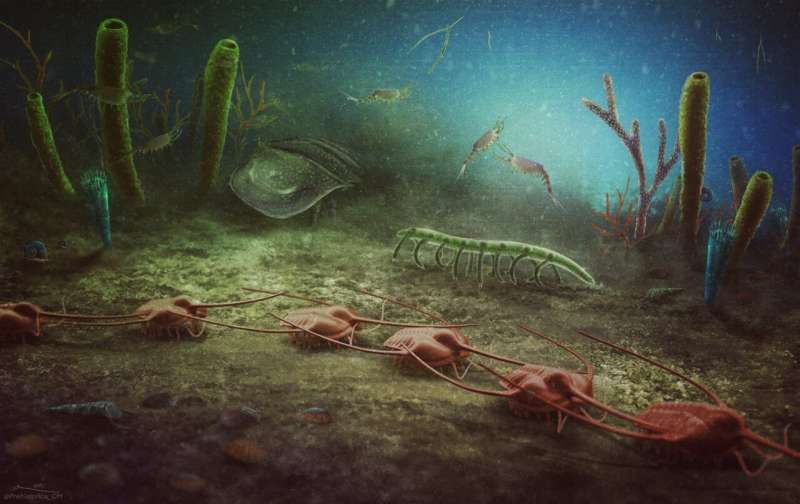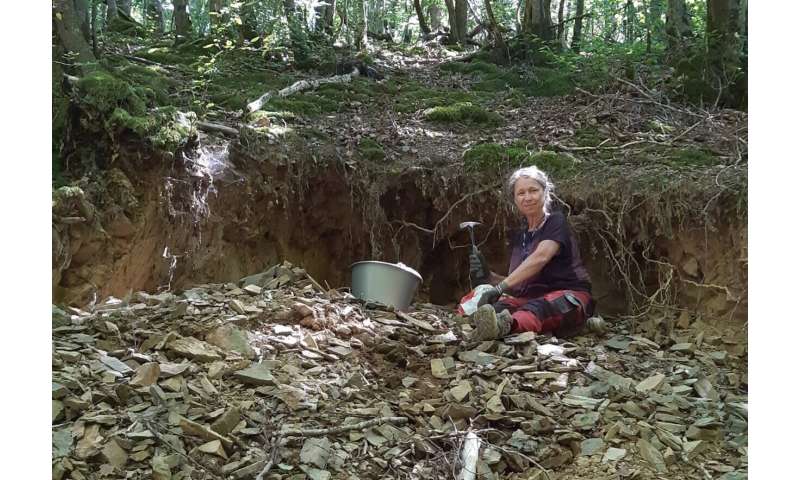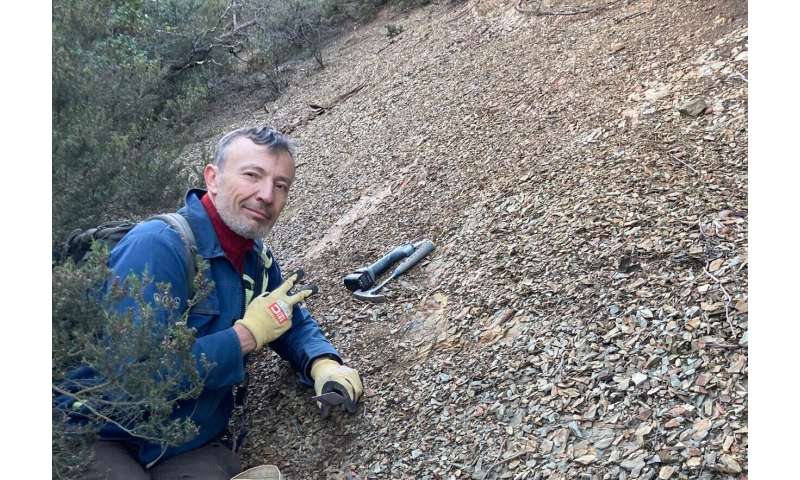This article has been reviewed according to Science X's editorial process and policies. Editors have highlighted the following attributes while ensuring the content's credibility:
fact-checked
peer-reviewed publication
trusted source
proofread
New fossil site of worldwide importance uncovered in southern France

Paleontology enthusiasts have unearthed one of the world's richest and most diverse fossil sites from the Lower Ordovician period (around 470 million years ago). Located in Montagne Noire, in the Hérault department of France, this deposit of over 400 fossils is distinguished by an exceptionally well-preserved fauna.
In addition to shelly components, it contains extremely rare soft elements such as digestive systems and cuticles, in a remarkable state of preservation. Moreover, this biota was once located very close to the South Pole, revealing the composition of Ordovician southernmost ecosystems.
At the Faculty of Geosciences and Environment at the University of Lausanne (UNIL), scientists have collaborated with the CNRS and international teams to carry out the first analyses of this deposit, known as the Cabrières Biota. The results are published in Nature Ecology & Evolution.
Ordovician climate refugia
Analyses of the new biota reveal the presence of arthropods (a group that includes millipedes and shrimps) and cnidarians (a group that includes jellyfish and corals), as well as a large number of algae and sponges. The site's high biodiversity suggests that this area served as a refuge for species that had escaped the high temperatures prevailing further north at the time.
"At this time of intense global warming, animals were indeed living in high latitude refugia, escaping extreme equatorial temperatures," says Farid Saleh, researcher at the University of Lausanne, and first author of the study.
"The distant past gives us a glimpse of our possible near future," adds Jonathan Antcliffe, researcher at the University of Lausanne and co-author of the study.
-

Sylvie Monceret is one of the people who discovered biota. Credit: Eric and Sylvie Monceret -

Eric Monceret is one of the persons who discovered the biota. Credit: Sylvie et Eric Monceret
For their part, Eric Monceret and Sylvie Monceret-Goujon, the amateurs who discovered the site, are enthusiastic. "We've been prospecting and searching for fossils since the age of twenty," says Eric Monceret.
"When we came across this amazing biota, we understood the importance of the discovery and went from amazement to excitement," adds Sylvie Monceret-Goujon.
This first publication marks the start of a long research program involving large-scale excavations and in-depth fossil analyses. Using innovative methods and techniques, the aim is to reveal the internal and external anatomy of the organisms, as well as to deduce their phylogenetic relationships and modes of life.
More information: Farid Saleh et al, The Cabrières Biota (France) provides insights into Ordovician polar ecosystems, Nature Ecology & Evolution (2024). DOI: 10.1038/s41559-024-02331-w
Journal information: Nature Ecology & Evolution
Provided by University of Lausanne





















